Veterinary care across NI and Britain has changed fundamentally in recent years, with large corporate companies buying up practices.
Between them, a small number of large corporates are believed to account for around half of the veterinary market across the UK.
NI has followed the trend started in England, with many of the larger practices now in the hands of companies such as IVC Evidensia, CVS Group Ltd and VetPartners Ltd. The three companies control large swaths of European veterinary care, with a business model funded by venture capitalists and underpinned by lots of debt.
For a local independent veterinary practice, it is easy to see the incentive to sell. The level of drugs, equipment and fixed costs carried in a well-established business makes it very difficult for a young vet to come in and buy into a partnership, so in many cases, it is the most attractive long-term exit strategy for a senior partner.
Being part of a corporate also delivers buying power for drugs, and provides access to a support network of specialist vets and scientists.
However, in the Republic of Ireland, one of the few veterinary markets where independent vet practices still dominate, there is an ongoing debate on whether corporate ownership will be detrimental for farmers in the long-term.
But what about young vets entering the profession in the UK? The options to buy into a practice are limited – are they destined for a career as an employee of a large company?
Re-invent
Perhaps there is still an opportunity to re-invent the original model of a local vet working closely with farm clients.
In Co Tyrone, two young vets have recently started out on their own, trying to do just that.
Stephen Hazelton and Patrick Finnegan are both 28, and graduated from Glasgow University in 2016 and 2017 respectively.
Having worked in various practices, including in New Zealand, they recently decided to start up Farm Vet Services, a dedicated large animal business, operating from bases in Clogher and Templepatrick.
“Setting up our own practice is something we both always wanted to do. It’s hard work. You have to want to be a large animal practice,” Patrick told the Irish Farmers Journal.
Over the years, many vet practices have expanded into potentially higher margin work, such as small animals, while also selling an extensive range of drugs and dosing products. Other small independent vets are very reliant on TB testing.
But the two men are clear that they believe there is a future for a dedicated farm animal vet.
“We don’t want to be a practice that relies too much on TB testing. Our focus is 100% geared to be a service-based farm vet practice. It is the future of veterinary – medicine has to be preventative,” said Patrick.
As well as routine veterinary care, they are keen to work closely with farm clients, whether it is drawing up herd health plans or vaccination programmes, testing faecal samples for fluke and worms, or mastitis prevention work such as teat sealing.
A main area of focus is also breeding and fertility work, from pre-breeding checks through to pregnancy diagnosis.
“We both worked on spring-calving dairy farms in New Zealand. It was a really good experience – we learned a lot and got a different point of view on lots of things,” maintained Patrick.
Costs
Over the past few months, the pair have gradually grown their client base, mainly by word of mouth.
But starting any business takes a lot of hard work and determination, and the pair must keep control of costs.
“We are a young business, so we have to keep on top of the bills. We can’t let credit go any more than a month. People understand, and are happy with that,” said Patrick.
Read more
New corporate vet business enters Northern Irish market
Irish vet businesses next in corporate trail
Veterinary care across NI and Britain has changed fundamentally in recent years, with large corporate companies buying up practices.
Between them, a small number of large corporates are believed to account for around half of the veterinary market across the UK.
NI has followed the trend started in England, with many of the larger practices now in the hands of companies such as IVC Evidensia, CVS Group Ltd and VetPartners Ltd. The three companies control large swaths of European veterinary care, with a business model funded by venture capitalists and underpinned by lots of debt.
For a local independent veterinary practice, it is easy to see the incentive to sell. The level of drugs, equipment and fixed costs carried in a well-established business makes it very difficult for a young vet to come in and buy into a partnership, so in many cases, it is the most attractive long-term exit strategy for a senior partner.
Being part of a corporate also delivers buying power for drugs, and provides access to a support network of specialist vets and scientists.
However, in the Republic of Ireland, one of the few veterinary markets where independent vet practices still dominate, there is an ongoing debate on whether corporate ownership will be detrimental for farmers in the long-term.
But what about young vets entering the profession in the UK? The options to buy into a practice are limited – are they destined for a career as an employee of a large company?
Re-invent
Perhaps there is still an opportunity to re-invent the original model of a local vet working closely with farm clients.
In Co Tyrone, two young vets have recently started out on their own, trying to do just that.
Stephen Hazelton and Patrick Finnegan are both 28, and graduated from Glasgow University in 2016 and 2017 respectively.
Having worked in various practices, including in New Zealand, they recently decided to start up Farm Vet Services, a dedicated large animal business, operating from bases in Clogher and Templepatrick.
“Setting up our own practice is something we both always wanted to do. It’s hard work. You have to want to be a large animal practice,” Patrick told the Irish Farmers Journal.
Over the years, many vet practices have expanded into potentially higher margin work, such as small animals, while also selling an extensive range of drugs and dosing products. Other small independent vets are very reliant on TB testing.
But the two men are clear that they believe there is a future for a dedicated farm animal vet.
“We don’t want to be a practice that relies too much on TB testing. Our focus is 100% geared to be a service-based farm vet practice. It is the future of veterinary – medicine has to be preventative,” said Patrick.
As well as routine veterinary care, they are keen to work closely with farm clients, whether it is drawing up herd health plans or vaccination programmes, testing faecal samples for fluke and worms, or mastitis prevention work such as teat sealing.
A main area of focus is also breeding and fertility work, from pre-breeding checks through to pregnancy diagnosis.
“We both worked on spring-calving dairy farms in New Zealand. It was a really good experience – we learned a lot and got a different point of view on lots of things,” maintained Patrick.
Costs
Over the past few months, the pair have gradually grown their client base, mainly by word of mouth.
But starting any business takes a lot of hard work and determination, and the pair must keep control of costs.
“We are a young business, so we have to keep on top of the bills. We can’t let credit go any more than a month. People understand, and are happy with that,” said Patrick.
Read more
New corporate vet business enters Northern Irish market
Irish vet businesses next in corporate trail




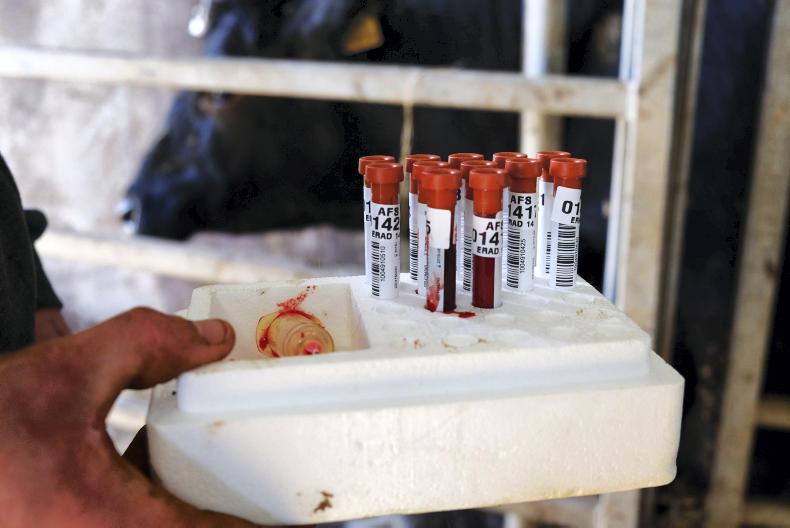
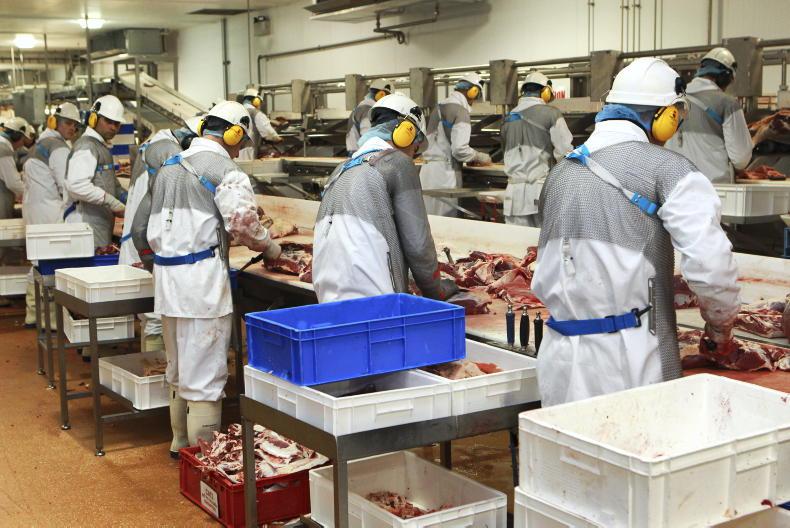
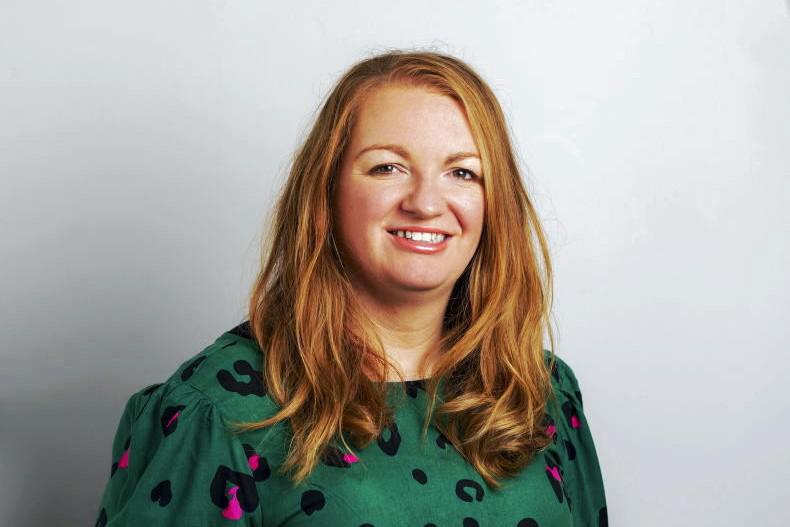
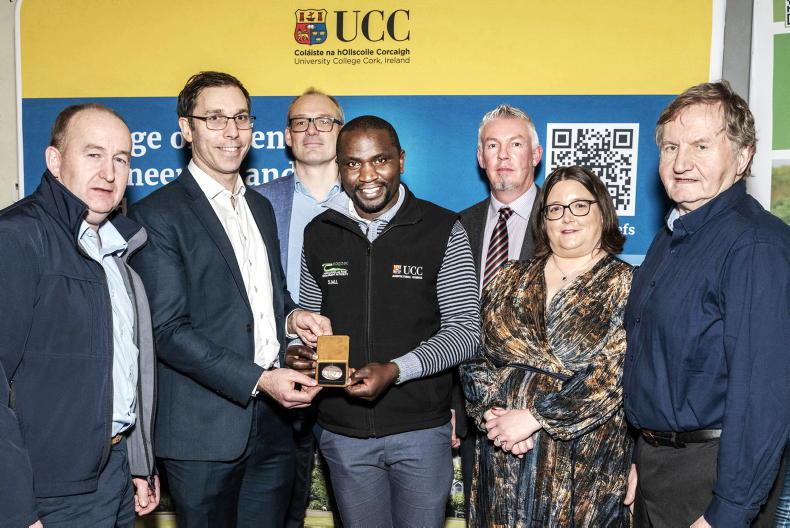
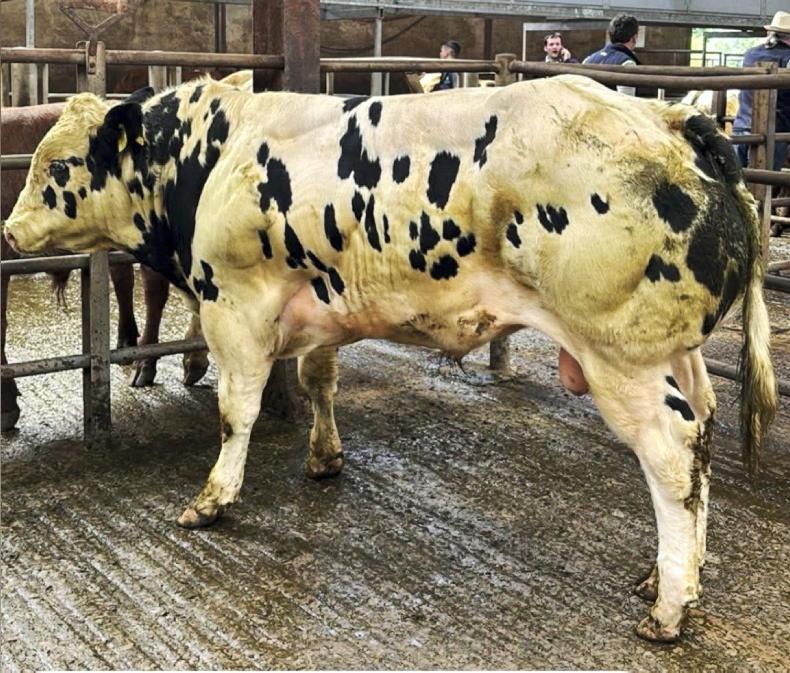
SHARING OPTIONS